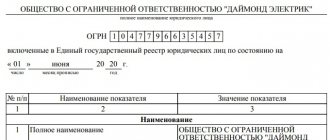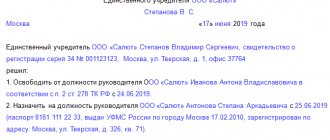Home / Bankruptcy / Bankruptcy of legal entities
Back
Published: September 15, 2019
Reading time: 6 min
0
508
A subject of a natural monopoly is a legal entity that is engaged in the production and sale of goods, works and services under the conditions of a natural monopoly. Such an enterprise goes bankrupt according to special rules that are related to the value of the goods, works and services supplied to end consumers.
- Peculiarities of bankruptcy of natural monopolies
- Step-by-step bankruptcy procedure Filing a bankruptcy application to the arbitration court
- Consideration of a bankruptcy petition and introduction of supervision
- Financial recovery
- External control
- Bankruptcy proceedings
Peculiarities of bankruptcy of natural monopolies
Russian individuals and legal entities go bankrupt according to the rules of the Civil Code and the separate Federal Law “On Insolvency” number 127.
Bankruptcy of natural monopolies is highlighted in a separate paragraph 6 of Chapter 9 127-FZ. Art. 197-201 127-FZ. In particular, the distinctive features of the external management stage are given in Art. 200 127-FZ, bankruptcy proceedings - in Article 201 127-FZ.
The right to declare a company bankrupt is within the exclusive competence of the arbitration court.
In order for the requirements of paragraph 6 of Chapter 9 of 127-FZ to be applied to a company, it is necessary that it be recognized by an arbitration court as a subject of natural monopolies. When classifying a company as this type, the arbitration court is guided by the provisions of the Federal Law “On Natural Monopolies” of 1995 No. 147-FZ, as well as information from the register of natural monopolies from the Federal Antimonopoly Service of the Russian Federation.
Based on Art. 3 Federal Law-147 “On Natural Monopolies”, a natural monopoly is understood as a state of the commodity market in which the satisfaction of current demand from buyers is more effective in the absence of normal market competition due to the technological features of production. The goods (works and services) of a natural monopoly cannot be replaced, which is why the demand for this product is less influenced by the price factor.
The FAS is responsible for the inclusion and exclusion of monopoly companies from the register of monopolies. The debtor organization has the right to apply to the antimonopoly service to remove information about itself from the register. But this does not guarantee the deprivation of its monopolist status in court: according to established judicial practice, the mere fact of absence of information about a certain organization in the register does not serve as evidence that the company is not a monopoly entity.
Based on Art. 4 147-FZ the areas of activity of the subject of a natural monopoly are:
- thermal energy transfer;
- water supply;
- drainage , etc.
A natural monopoly entity may declare bankruptcy if it meets a number of criteria. They differ from those that apply to other legal entities declaring bankruptcy. In general, a legal entity can declare financial insolvency with a debt of 500 thousand rubles. or more, as well as overdue for 3 months or more.
Based on clause 2 of Art. 197 127-FZ, subjects of natural monopolies are considered unable to repay the claims of creditors if they have arrears in payment:
- creditors' claims regarding monetary obligations;
- severance pay and wages for employees of the organization and former employees;
- mandatory payments in the form of taxes and fees (to the Pension Fund, Social Insurance Fund, Federal Tax Service).
The specified requirements under clause 3 of Art. 197 127-FZ must be confirmed by a separate executive document issued by the court, while the bailiffs were unable to satisfy these claims through the procedure for collecting property under Art. 94 of the Federal Law “On Enforcement Proceedings” and this fact has been documented.
Thus, it is much more difficult for creditors in relation to a natural monopoly to assert their claims against the debtor than in the standard bankruptcy process. This is due to the fact that they are required to first go through the enforcement process. Creditors must adhere to the following procedure:
- Go to court to confirm your claims and collect them through enforcement proceedings.
- Submit the writ of execution to the bailiff service and wait for the start of enforcement proceedings.
- As part of enforcement proceedings, bailiffs are required to search and sell the company’s property.
- Only if, as a result of enforcement proceedings, the debt cannot be repaid, creditors have the right to apply to the court for bankruptcy.
To confirm the fact of insufficiency of property, the creditor must attach to the application a corresponding act issued by the bailiff service.
This procedure puts creditors of monopoly companies at a disadvantage: the enforcement procedure can take years, which reduces the possibility of them returning funds.
Based on clauses 2, 3 of Art. 197 127-FZ, the arbitration court may initiate bankruptcy proceedings if the subject of natural monopolies meets such criteria as:
- Having outstanding debt for 6 months or more.
- Confirmed debt obligations in the amount of at least 1 million rubles.
Another important feature of the bankruptcy of natural monopolies is that the federal executive body, which is responsible for the policy of the monopoly entity, is involved in the case (based on Article 198 127-FZ). Today, such a government body is the FAS.
In paragraph 1 of Art. 199 127-FZ states that a bankruptcy case can be suspended by an arbitration court if the debtor has filed a claim to invalidate regulations on the approval of prices for goods and services produced by the monopoly.
Step-by-step bankruptcy procedure
The procedure for recognizing the financial insolvency of a natural monopoly entity involves going through the following stages.
Filing a bankruptcy petition to the arbitration court
An application to declare the company bankrupt is submitted to the arbitration court at the location of the debtor. The debtor company, its creditors or an authorized body have the right to initiate this procedure. The application must contain an indication of the amount of debt, a list of creditors and the reason for the debt obligations. A copy of the application is sent to all participants in the bankruptcy case . If creditors submit an application, the debtor has the right to submit to the arbitration court a response to it describing his own vision of the financial situation in the company.
Consideration of a bankruptcy petition and introduction of supervision
When considering a bankruptcy application, the court evaluates its validity, taking into account the requirements for such organizations. In particular, the inability to repay creditors’ claims for 6 months or more and the presence of a total debt of 1 million rubles are considered.
Courts refuse to initiate the process of recognizing financial insolvency at the request of creditors if the creditors have not previously gone through the debt collection process as part of enforcement proceedings. Without meeting the legal conditions, the application may be rejected or returned.
If all the legal requirements for the application have been met, then the court issues a ruling on introducing the monitoring stage and appointing a temporary manager. At this stage, a register of claims is formed and the first meeting of creditors is held.
Financial recovery
Financial recovery of an enterprise is an optional stage of bankruptcy. It is introduced at the initiative of a monopoly company or a meeting of creditors. In essence, recovery is an installment plan for the company’s debt obligations.
This stage involves the debtor developing a recovery plan and a debt repayment schedule for a period of up to 2 years. A natural monopoly entity should also acquire guarantors or guarantors for the fulfillment of obligations, which will increase the chances of court approval of the debt repayment schedule.
If, based on the results of the financial recovery stage, the problem with overdue debt can be resolved, then the court may completely terminate the bankruptcy process. If, based on the results of the stage, solvency has not been restored, then the stage of bankruptcy proceedings or external management is introduced.
External control
At the request of creditors, the stage of external management may be introduced in relation to the debtor. As part of this stage, the management of the legal entity is removed from business, and its powers are transferred to a professional external manager . He is developing a special plan to bring the company out of the crisis and normalize its balance of payments. The set of measures may include the closure of non-core assets and unprofitable divisions, rejection of unprofitable transactions, sale of the debtor’s property, etc.
Taking into account the fact that the subject of natural monopolies performs important social functions, and its services are of particular value to ordinary consumers, some restrictive measures are introduced regarding the work of the external manager.
Based on paragraph 1 of Art. 200 127-FZ, the manager is prohibited from terminating the obligations of the monopoly entity to end consumers. Based on clause 2 of Art. 200 127-FZ, the manager does not have the right to alienate the debtor’s property or sell it at auction if it is part of a single technological complex.
Based on clause 2 of Art. 200 127-FZ, property that represents a single technological complex includes real estate, other property for the production of goods, stocks of raw materials and consumables.
Based on clause 6 of Art. 201 127-FZ, the repurposing of unprofitable production facilities or their closure at the stage of external management is permitted in accordance with federal legislation.
During external administration, federal, regional or municipal authorities have the right to postpone the sale of the debtor’s property for a period of up to 3 months in order to develop a set of measures to restore the company’s solvency.
Nuances of the procedure
The specificity of the described operation differs in a number of special aspects. In addition to the nuances already listed, certain rules apply here regarding the candidacy of an anti-crisis manager and the stage of bankruptcy proceedings. Let's take a closer look at these requirements.
About the actions of a financial attorney
If the proceedings reach the stage of external management, then the court appoints a manager for the bankrupt enterprise who controls the legality of conducting economic affairs. In such situations, the new manager fulfills already concluded contracts with clients of such an organization . Breaking such agreements is considered illegal.
In addition, this person does not have the right to dispose of the company’s property, which is used for the execution of concluded contracts, at his own discretion. Here we are talking about movable and immovable objects, technical equipment, raw materials. This rule follows from the already mentioned point about the impossibility of terminating business relations with consumers.
Property sale
When announcing tenders, there is an advantage in purchasing such an enterprise from the state
Considering that sometimes the only way out of a crisis is to organize tenders, the law allows this option in such cases.
However, representatives of the Federal body have the right to suspend the auction procedure for 3 months.
During the specified period, the state introduces an alternative strategy for restoring the debtor’s solvency.
If bidding remains the only reasonable choice, preference in purchasing the enterprise is given to the state.
However, if this subject of the process does not want to participate in the transaction, other buyers are allowed to participate in the auction.
In this situation, the law sets clear rules for potential monopolists.
Attention ! The considered scenario involves the signing of a contract between government officials and the buyer.
Such agreements provide for the conditions for the acquisition of a monopoly organization. The first requirement is the acceptance by the debtor's successor of obligations to the clients of the bankrupt company. In addition, the buyer’s consent is required to fulfill obligations to creditors under already concluded agreements. The last condition is that the applicant obtains a license authorizing a specific type of work.
Crisis prevention measures
This scenario is considered the optimal way out of the situation. And regular audits of the company's economic policies help minimize the likelihood of bankruptcy . The following measures are appropriate here:
- analysis of financial condition;
- identification of factors potentially dangerous to the economy;
- drawing up a strategy to overcome the crisis.
If time has already been lost, it is appropriate for the manager to think about hiring an anti-crisis manager who will straighten out the situation and improve the solvency of the company. Competent management and an advertising campaign will take the enterprise out of the “blow” by increasing the liquidity of such an organization.
Important ! When the situation becomes critical, it is advisable to negotiate with creditors.
In such situations, the parties enter into an amicable agreement to repay the arrears. Moreover, this method of resolving issues is practiced both at the stage of pre-trial conflict resolution and at any stage of the hearing of the case.
Here the lawyers are talking about both counterparties signing a contract to restructure payments. In such circumstances, the debtor is offered a deferment of payments or recalculation of the debt with payment in equal installments. The specific decision here is determined by the financial capabilities of the parties.









